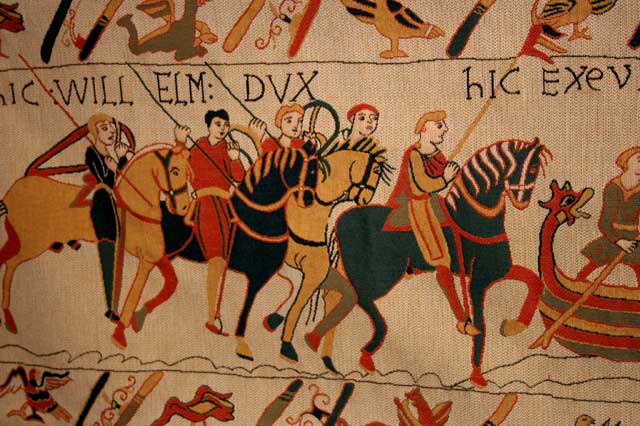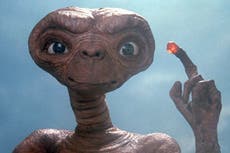The Top 10: Greatest Political Errors of All Time
A selection of decisions that worked out rather badly


Your support helps us to tell the story
From reproductive rights to climate change to Big Tech, The Independent is on the ground when the story is developing. Whether it's investigating the financials of Elon Musk's pro-Trump PAC or producing our latest documentary, 'The A Word', which shines a light on the American women fighting for reproductive rights, we know how important it is to parse out the facts from the messaging.
At such a critical moment in US history, we need reporters on the ground. Your donation allows us to keep sending journalists to speak to both sides of the story.
The Independent is trusted by Americans across the entire political spectrum. And unlike many other quality news outlets, we choose not to lock Americans out of our reporting and analysis with paywalls. We believe quality journalism should be available to everyone, paid for by those who can afford it.
Your support makes all the difference.A Twitter account called Rejoin and Reform, campaigning to rejoin the EU, suggested that Jo Swinson, the Liberal Democrat leader, allowing Boris Johnson to hold an election last year was the “greatest political error of all time”. Thanks to Paddy Briggs, who drew my attention to it.
1. Harold’s decision to rush his exhausted troops from winning the Battle of Stamford Bridge against Norwegian invaders, to meet William the Conqueror at Hastings, 1066. He should have rested them in a less hasty rush south and allowed time to gather reinforcements. Nominated by Gavin Turner.
2. Ship Money. Excellent nomination by Peter Warner. Specifically, Charles I’s imposition of yet another levy in 1636. This tax, to pay for the navy, didn’t have to be voted by parliament, but now the king seemed intent on using it to rule autocratically. We know what happened next.
3. Napoleon’s kidnap and execution of the Duc d’Enghien in 1804. Turning many of Europe’s aristocrats including the Tsar against France, it was the source of the quotation attributed variously to Talleyrand, Fouche and the Comte de la Meurthe: “It was worse than a crime, it was a mistake!” Thanks to Stewart Slater.
4. Archduke Franz Ferdinand’s decision to visit Sarajevo in 1914 to jolly along the natives. I rejected that one on the grounds that the Great War was probably unstoppable by then, but Mick O’Hare switched to an earlier decision by Britain to sign the Treaty of London in 1839 guaranteeing Belgian neutrality. “It did for my great grandfather in 1916,” he said.
5. Franz von Papen inviting Hitler to become chancellor of Germany, 1933, believing he could “tame the tiger”. Hard to argue with Mark Ramsbottom’s nomination.
6. The Attlee government’s sale of Rolls-Royce Nene jet engines to the USSR in 1946, which allowed the Soviets to copy our technology in the MiG-15, which shot down British Meteors and killed our pilots over Korea a few years later. “The minister responsible for this blunder was Harold Wilson; it is barely touched on in his official biography” – niche nomination from Paul T Horgan, who also issued a successful plea for Neville Chamberlain’s appeasement to be excluded from the list.
7. Nixon installing the taping system in the Oval Office, 1971. Thanks to Stewart Slater.
8. James Callaghan failing to call an election in 1978, before the winter of strikes damaged the Labour government’s reputation. Nomination from Paddy Briggs.
9. Gordon Brown’s refusal to hold a referendum on the Lisbon Treaty, 2009. Thanks to Chris HWS. Lots of nominations for David Cameron’s decision to hold the Brexit referendum, but I disagree, and in any case I am reluctant to describe a democratic decision of the people as a mistake (the same applies to the 2011 referendum on the voting system, nominated by someone called NonStopDemocrat; and to Donald Trump’s election in 2016, nominated by Sue Breadner). Subsidiary nominations for Keir Starmer’s failure to support Theresa May’s customs union compromise, which could have resulted in a softer Brexit, came from Jay Manchi and Stewart Slater.
10. Ed Miliband winning over David, 2010. “Hugely consequential,” argued David Fuller, “affecting Syria intervention and the leadership rule change opened the door for Corbyn.”
Another popular nomination (including from Cole Davis and Rob Prince) was Margaret Beckett, Frank Field, Sadiq Khan and other MPs nominating Jeremy Corbyn as Labour leader in 2015 to “broaden the debate”, but it did not qualify as one of the worst of “all time”. And I ruled against Scottish devolution, 1997, nominated by Stewart Slater, on the grounds that resisting devolution would probably have empowered the independence cause just as much.
Next week: TV shows that lasted longer than the thing they were portraying, such as Dad’s Army, which ran for longer than the Second World War.
Coming soon: Technologies that are definitely just about to solve big problems but probably won’t ever work, after Boris Johnson enthused about hydrogen power.
Your suggestions please, and ideas for future Top 10s, to me on Twitter, or by email to top10@independent.co.uk


Join our commenting forum
Join thought-provoking conversations, follow other Independent readers and see their replies
Comments